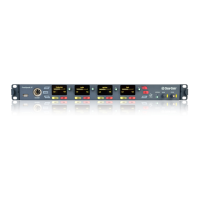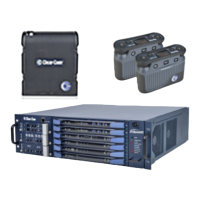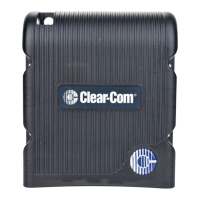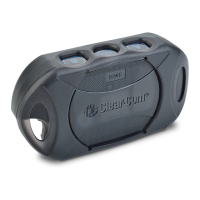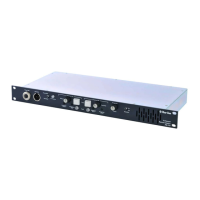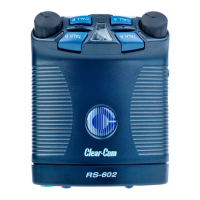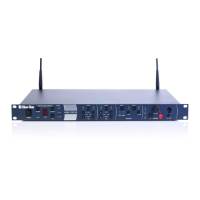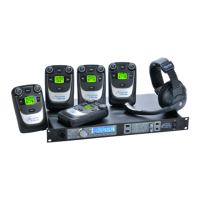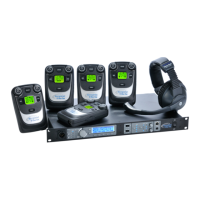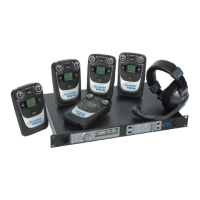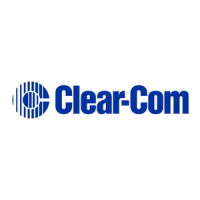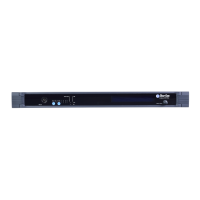FreeSpeak Edge | User Guide
Channel type Restrictions
ISM (Industrial, scientific and
medical)
These are the channels with the least restrictions and
highest allowance for transmission power. However, they
may be crowded with interference since ISM channels are
equally the first choice for other wireless equipment. Also,
generic ISM channels don’t exist in some countries (for
example. Japan).
TPC (transmit power control)
Transmission power is restricted in these channels. The
maximum power setting for the FreeSpeak Edge system is
below the TPC values.
Indoor Channels
If these channels are used, the equipment may only operate
in an indoor setting. Different countries have different
definitions and requirements for indoor settings.
DFS (dynamic frequency
selection)
Devices operating in this channel are required to
implement a radar detection mechanism and move to a
different channel when radar pulses are detected.
For detailed information refer to:
FreeSpeak Edge RF Configuration Guide
, available from the
Clear-Com website.
3.1 Channel selection
The system software will allocate channels automatically. However, you may wish to allocate
channels manually, for instance if you are using more than 4 transceivers or are working in a
crowded RF environment.
Each transceiver uses two channels unless DFS channels are selected in which case the
transceiver uses 3 channels. When DFSchannels are used the device needs a backup channel
in the event that the signal needs to be moved due to the detection of radar.
Channels on a transceiver must not be next to each other in the RF spectrum in order to avoid
interference in the audio signals. They cannot be adjacent. This channel spacing is enforced by
the EHXsoftware.
For example, you might use channels 36 (Channel 1) and 40 (Channel 2). These channels are
separated by 20 MHz and so are not adjacent.
Page 13
